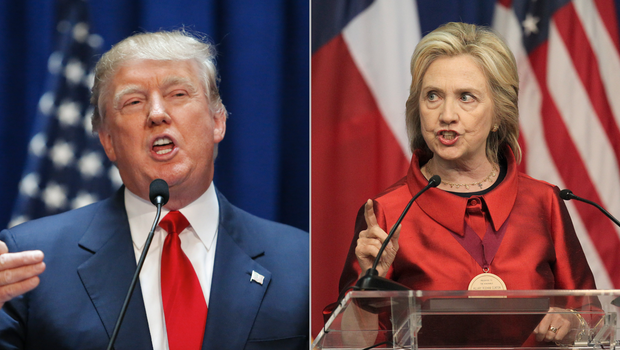Hillary Clinton and Donald Trump are to face each other in their first TV debate.
The two presidential candidates will take to the stage in New York on September 26.
The duel at Hofstra University could be the most watched debate in TV history, with 100 million viewers.
There are 43 days until the November election, with polls suggesting Democratic candidate Hillary Clinton has a narrow lead nationally.
Controversy has marked the debate build-up after Donald Trump said he might invite a woman who had an affair with Bill Clinton in the 1970s.
The Republican tweeted on September 24 that he would perhaps ask Gennifer Flowers to sit in the debate audience, in response to Hillary Clinton having invited Trump critic Mark Cuban.
Gennifer Flowers initially said she would attend but Donald Trump’s running mate, Mike Pence, said on September 25 she was not coming and the suggestion was not a serious one.

The debate at 21:00 local time will last 90 minutes and is being moderated by NBC news anchor Lester Holt.
It is the most hotly anticipated event so far in a long election campaign, partly due to the contrasting styles of the two candidates.
Donald Trump marched to a stunning win in the Republican primaries against vastly more experienced political opponents, he hurled personal insults and made suggestive remarks on the debate stage.
Hillary Clinton, with decades of experience in politics, usually relies more on a firm and detailed policy grasp, but has problems portraying authenticity and spontaneity.
Observers predict the audience could be as high as that for the Super Bowl and surpass the 80 million who watched Jimmy Carter and Ronald Reagan debate in 1980.
Three of the topics for the six segments of the debate have already been announced – America’s Direction, Achieving Prosperity and Securing America – but three others, based on events in the news, will be asked during the debate.
In the past week, both Hillary Clinton and Donald Trump have focused on the response to fatal police shootings of African-American men in Tulsa, Oklahoma, and Charlotte, North Carolina, as well as the ensuing protests.
